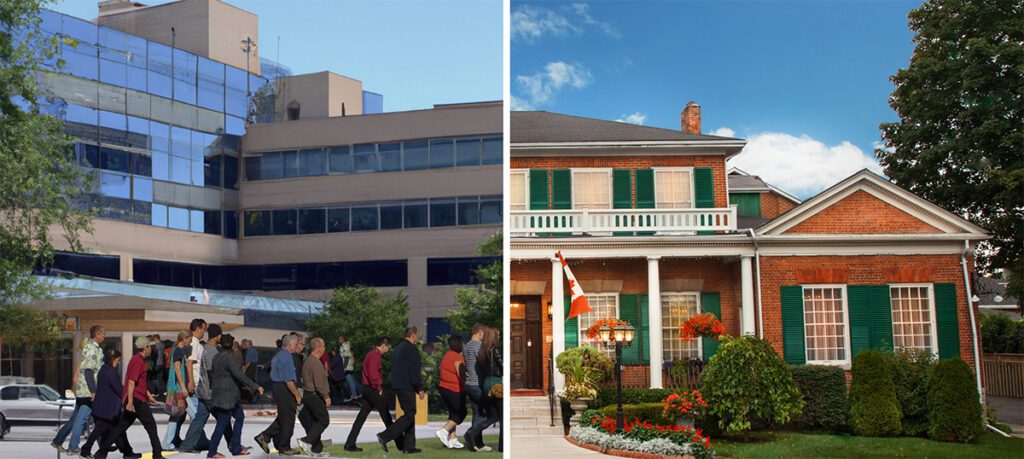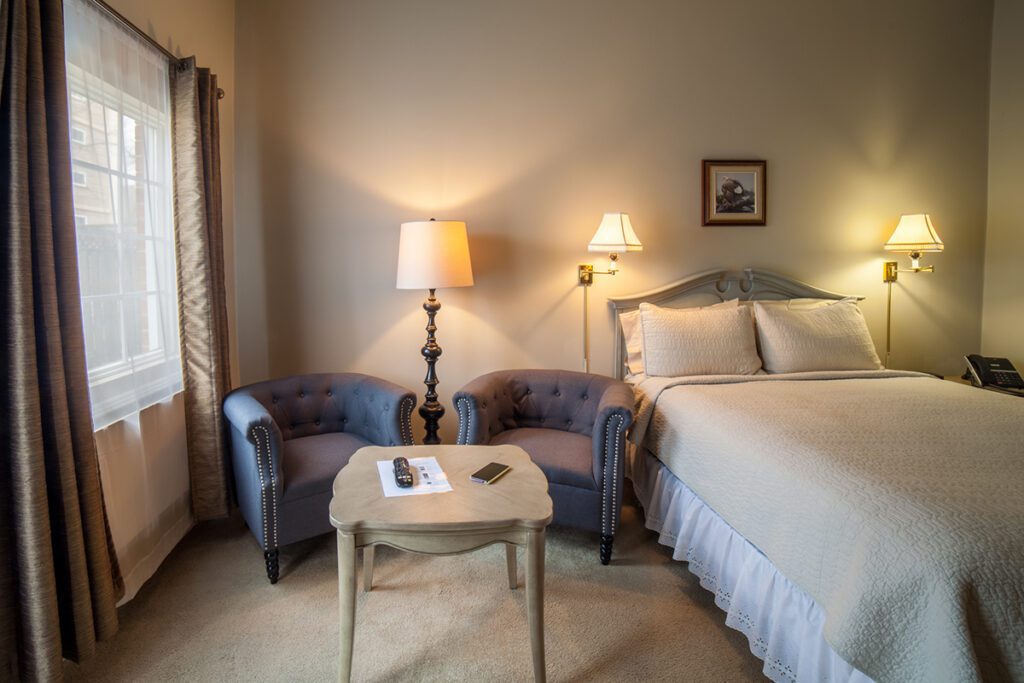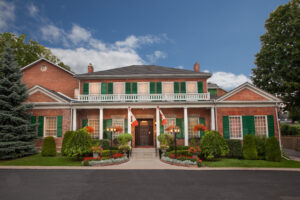How Much Does Drug and Alcohol Rehab Cost in Ontario, Canada?

People with addictions and their loved ones must consider several factors when seeking addiction treatment. One of such factors is the cost of treatment. Quality addiction treatment can be pricey, and it’s necessary to understand what one’s options are. So, how much does rehab cost in Ontario, Canada? The answer is it depends – on the type of treatment the individual requires, the quality of available resources, and the dedication to care, among other factors. The Canadian Centre for Addictions explores the factors that can influence the cost of rehab in Ontario.
Key Takeaways
- Addiction treatment is expensive, and one must consider costs when seeking addiction rehab.
- Public-funded treatment centres offer free or affordable addiction treatment, with a reduced level of care and long waiting periods.
- Private rehab centres offer a higher level of care and little to no waiting periods but often come at significant costs.
- It’s essential to consider factors like treatment options, resources, accreditation, and success rates, among other factors, when choosing a rehab facility.
Is Rehab Free in Ontario?

There are publicly-funded treatment centres in Ontario offering free or partially-funded drug rehab. However, these facilities have a long waitlist due to the large number of people who need help with addictions and mental health disorders in the province. Individuals seeking to enter these programs must first register and wait – usually for months – till a space becomes available.
The level of care in these funded facilities is also quite different from what you’ll get in a private treatment centre. Private treatment centres offer a customized approach that can significantly impact patient outcomes. The budgeting constraints make it difficult for public rehab centres to provide such a high level of care. Public treatment centre settings may also not offer the comfort and serenity typically associated with private care centres.
At CCFA, we offer drug and alcohol rehab in a luxurious environment that inspires lasting change. We help our clients understand their addictions and the healthier coping strategies available by engaging them in one-on-one counselling with certified addiction counsellors, psychiatrists, and mental health professionals. Call 1-855-499-9446 today to learn more about our treatment programs and pricing.
Factors that Impact the Cost of Rehab in Ontario
Funding type is not the only reason for the differences in Ontario rehab costs. Even among private centres, other factors may impact how much you’ll have to pay for rehab. They include:
Resources and Services
How equipped a treatment centre is and the level of service to be committed to your treatment will affect rehab costs. A facility in a picturesque location with steam baths, private rooms, swimming pools, gourmet food, meditation centres, and basketball courts will cost more than a centre with only a few amenities. The presence of services like one-on-one counselling, intervention counselling, and detox will also add to treatment costs.
Quality and Care of Staff
The education qualifications of the staff at the facility and the quality of care they provide will affect rehab costs. Low-cost facilities may have staff with little professional background offering group counselling sessions with no individual time with patients. Higher-priced rehab facilities may provide individual counselling, family therapy, nutritional programs, partner support, and specialized substance abuse and addiction treatment, depending on the client’s needs.
Treatment Options
The treatment options being offered by a facility also influence cost. A facility offering medically guided detox, inpatient and outpatient treatment, co-occurring disorder treatment, and lifetime aftercare will cost more than facilities without some of these services. Some facilities also offer specific treatments for military service members, veterans, and gender-specific services, which can influence treatment costs.
Length of Stay
For inpatient rehab, how long one stays in the facility affects treatment costs. How long an individual will spend in a centre depends on their unique circumstances, but this may affect the quality of treatment. Private treatment providers differ in their approach to treatment, which can also affect length of stay and cost.
Facility’s Accreditation
An accredited facility has been evaluated by the regulatory authorities and certified to meet the set quality standards. A facility that passes the accreditation test will deliver a high standard of service, which will be reflected in its costs.
Additional Factors
Additional factors that may affect the cost of drug and alcohol addiction treatment are:
- The specific type of addiction being treated
- Your health insurance plan
- Location of the facility
Private vs. Public Rehab Centres

Private and public rehabs are the options available for drug addiction treatment in Canada. How both options work varies across provinces, but in Ontario, residents can access treatment programs through the Ontario Health Insurance Plan (OHIP). You may need to consider the following factors when deciding between private or public treatment for you or a loved one.
Cost
OHIP programs are free or cheap and cover treatment for alcohol or drug addiction. Private rehab centres may offer more amenities but may be too costly for individuals trying to get sober on a budget.
Waiting Periods
There is usually a long waitlist of people trying to get into public addiction treatment programs, leading to delays. Private facilities have minimal waiting periods, allowing patients to commence their treatment immediately.
Location
Private facilities are typically located in luxurious, serene environments conducive to healing and recovery. Public treatment facilities usually have a hospital setting, which may not be suited to all addiction cases.
Level of Care
Private treatment centres offer a high level of care, often tailored to each client’s specific needs. Public treatment centres may be constrained by funding and staffing, making it difficult to offer patient-oriented treatments that produce more positive outcomes.
CCFA’s Tips on Choosing the Best Rehab Centre for You and Your Loved One
Choosing the right rehab centre is important for any addiction recovery journey. The sheer number of centres offering different programs can make the choice challenging. However, it’s easier to decide when you know what to look for. Here are our tips on finding the best rehab centre for you or a loved one:
Know your needs and recovery goals
Before you go exploring your options, it may help to understand what you hope to achieve for yourself or a loved one. Your recovery goals could include:
- Drug or alcohol detox,
- Learning about the root causes of your addiction,
- Developing coping skills
- Repairing damaged relationships.
At CCFA, we offer client-oriented treatment designed to help you hit all your recovery goals.
Location
There are varying opinions on whether an addiction recovery centre should be close to the client’s home. Some people think that the familiar, comforting surroundings of a nearby facility and proximity to support networks aid recovery. Others believe it’s better to go far away from toxic relationships and triggers that may fuel addiction. It’s necessary to select a centre in a serene location that suits your needs and offers you the best recovery chance.
Residential or Outpatient Treatment

Many treatment facilities offer residential or outpatient treatment. Residential or inpatient addiction treatment requires you to live at the facility during rehab, while outpatient treatment allows you to receive treatment from home. Inpatient treatment offers an intensive, distraction-free environment ideal for severe or long-term addictions. Outpatient facilities will enable you to attend therapy from home, giving you the flexibility to continue with your responsibilities. At CCFA, we offer residential and outpatient rehab services, with programs designed to make recovery as smooth as possible.
Dual Diagnosis Capability
Many people with addiction also struggle with mental health conditions like depression, anxiety, and post-traumatic stress disorder (PTSD). If you or a loved one is dealing with a co-occurring health condition, selecting a facility equipped with the resources and personnel to handle a dual diagnosis is crucial. The experts at CCFA are trained to tailor therapy sessions to suit the needs of people with co-occurring disorders.
Duration of Program
The length of stay in a rehab program mostly depends on the individual’s needs and progress. Addiction recovery professionals recommend at least 90 days in treatment to allow enough time to address the various issues that typically accompany substance use disorders. In most cases, the patient will complete 30 to 60 days in residential treatment before transitioning to a sober living facility or returning home to complete their treatment. At CCFA, we understand that every client is unique, so we offer programs with varying durations to cover as many people as possible.
Cost
Addiction rehab can be expensive, so it’s essential to factor in cost when selecting a program. Depending on your situation, your health insurance may entirely or partially cover your rehab, so that’s the first place to look. Some rehab facilities cost more than others, so you want to find one that fits your budget. It’s important to understand the financial implications of long-term addiction are often more significant than the cost of treatment, so you should weigh the cost of treatment against the cost of getting low-quality help. At CCFA, we work with Medicard to help clients obtain financing. Medicard pays for treatment and health services upfront so you can get immediate help and then allows you to pay through monthly amounts afterward.
Licensing and Accreditation
It is essential to select a facility with the relevant licensing and accreditation. The Canadian Centre for Addiction is accredited with commendation by Accreditation Agreement Canada, signifying that our facilities meet the highest quality and safety standards.
Specialization
Not all rehab facilities are equipped to treat all addiction types. Some centres may only be able to handle cocaine or heroin addiction and nothing else, while others may have the amenities and personnel to treat various addictions and dual diagnoses. Selecting a facility that can handle your particular type of addiction is crucial. CCFA’s treatment programs cover various addictions, including alcohol, opioid, marijuana, and cocaine addictions.
Approach to Treatment
The best treatment centres will offer multiple treatment approaches to better handle the various aspects of addiction for better treatment outcomes. People with addictions respond differently to treatments, and having a wide range of options improves one’s chances of finding something that works. At CCFA, we offer multiple treatment options, including:
- Individual counselling
- Group counselling
- Intervention counselling
- Holistic wellness programs (meditation, mindfulness, yoga, nutrition, physical activity, etc.)
Success Rates
A facility with an excellent success rate offers clients a better chance of a positive outcome. Ideally, rehab success rates should be quoted using research-based methods. CCFA employs rigorous, evidence-based research and statistical analysis to determine treatment effectiveness. Using our Rehabilitation Wellness Inventory to provide empirical evidence of our treatment programs, our research showed significant overall improvement in 93.8% of clients who completed our treatment program.
Post-treatment Support
Addiction recovery continues after treatment, and aftercare is essential to preventing relapse and helping clients remain sober. You want to find a rehab centre that offers functional aftercare programs that ensure lasting recovery. CCFA provides a comprehensive aftercare and relapse prevention program to help clients maintain their recovery.
Conclusion
Addiction treatment is expensive, but you can’t place a price tag on your health, so cost should not prevent you from getting the help you need and deserve. Moreover, whatever you spend on getting better is best considered an investment from which you’ll reap tremendous returns in the future. The Canadian Centre for Addictions offers comprehensive drug and alcohol treatment in Ontario customized to meet the needs of every client who walks through our doors.
Call 1-855-499-9446 today to get a quote for you or a loved one and begin your journey to a richer and more fulfilling life.
Frequently asked questions
How long rehab is in Toronto depends on the specifics of each case. Generally, patients spend between 30 to 90 days in addiction treatment. Most patients will spend 30 to 60 days in a treatment facility before transitioning to outpatient treatment or a sober living home.
The Ontario Health Insurance Plan (OHIP) covers the cost of inpatient rehab for specific drug programs, but this does not extend to private treatment centres. OHIP may also cover outpatient treatment or detox at specific clinics.
There is usually a waitlist for public rehab facilities due to the large number of people seeking treatment. Patients often have to wait weeks to months before getting a room in one of the public treatment facilities. Private facilities have little to no waiting periods before admitting patients.
The addiction policy in Ontario under the Human Rights Code considers addiction a disability, so that is the ground from which an individual is protected from discrimination and would have to be accommodated. This code requires employers to accommodate the needs of workers with a disability up to the point of undue hardship.
Possession of controlled substances is illegal in Canada and carries a sentence of up to seven years. For first-time offenders, the maximum penalties are a $1,000 fine and six months in prison or both. Subsequent convictions will carry a fine of $2,000 and one year imprisonment or both. The type of drug involved in the case affects the penalties handed out.
A heavy drinker in Canada is a male who has five or more drinks or a female who has four or more drinks on a single occasion at least once a month.




